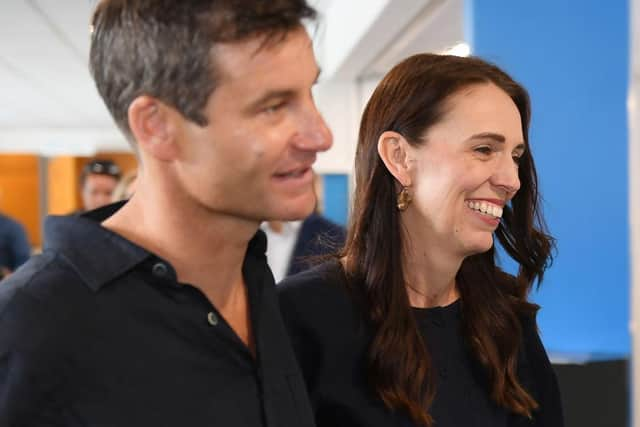Jacinda Ardern: Popular New Zealand leader whose resignation speech proved her as ‘antithesis to right-wing strongmen’ like Donald Trump
Now New Zealand prime minister Jacinda Ardern – at one time the youngest female head of government in the world – is to step down after six years, saying she no longer has "enough in the tank" to lead. She is to leave the role on February 7.
Ms Ardern is popular internationally, although has faced increasing opposition at home, not least for her stringent Covid policies, which saw New Zealand effectively shut to visitors until last summer – months and in some cases more than a year after other countries had opened up.
Advertisement
Hide AdAdvertisement
Hide AdIn addition to the Covid crisis, which saw New Zealand adopt as close to a “zero Covid” approach as any Western country has done, she has seen her country through some other difficult times.


In March 2019, a lone gunman opened fire at two mosques in Christchurch, killing 51 people. Ms Ardern strongly denounced the gunman and his actions, while in the wake of the shooting, she was pictured wearing a hijab while embracing Muslim New Zealanders.
She subsequently moved quickly to tighten New Zealand’s gun laws, banning military-style semi-automatic firearms just six days after the attacks, and removing more than 62,000 prohibited firearms from circulation through the gun buy-back scheme.
Later the same year, Whakaari, an active stratovolcano island in New Zealand's north-eastern Bay of Plenty region, explosively erupted, killing 22 people.
However, more recently, even progressive, liberal Kiwis began to tire of the tight Covid restrictions. The soaring cost of living, which is being played out in countries across the globe, had sparked criticism of the government.
Ms Ardern’s popularity has plummeted over the past year, from record heights, to the lowest of her career. Known at the time as “Jacindamania”, her personal popularity at the beginning of her high-profile career turned around the fortunes of her Labour Party, leading it to a 2017 coalition election victory. However, the last polling of 2022 saw Labour at 33 per cent, compared with around 38 per cent for the centre-right National party.
The leader has, however, remained popular among her peers. Her frank admission she can no longer carry on in her role is characteristically open from a leader who has been described by the New York Times as “the progressive antithesis to right-wing strongmen like Trump, Orban and Modi”. Political leanings aside, it is difficult to imagine many other leaders who would admit personal weakness, instead usually choosing to couch resignations in “spending time with family” or similar.
She has been long admired by First Minister Nicola Sturgeon, who has made numerous attempts to demonstrate their friendly relationship on social media, as well as comparing decisions made in New Zealand, which has a similar sized population to Scotland, with that of her own nation.
Advertisement
Hide AdAdvertisement
Hide AdIn 2019, she replicated a video Ms Ardern’s party had made listing the party’s achievements in two minutes.
"My team saw your video @JacindaArdern – so no harm in some friendly competition,” she said. “Here’s my attempt to get through some of my Scottish Government’s headline achievements in under two minutes. Start the clock!"
Comments
Want to join the conversation? Please or to comment on this article.